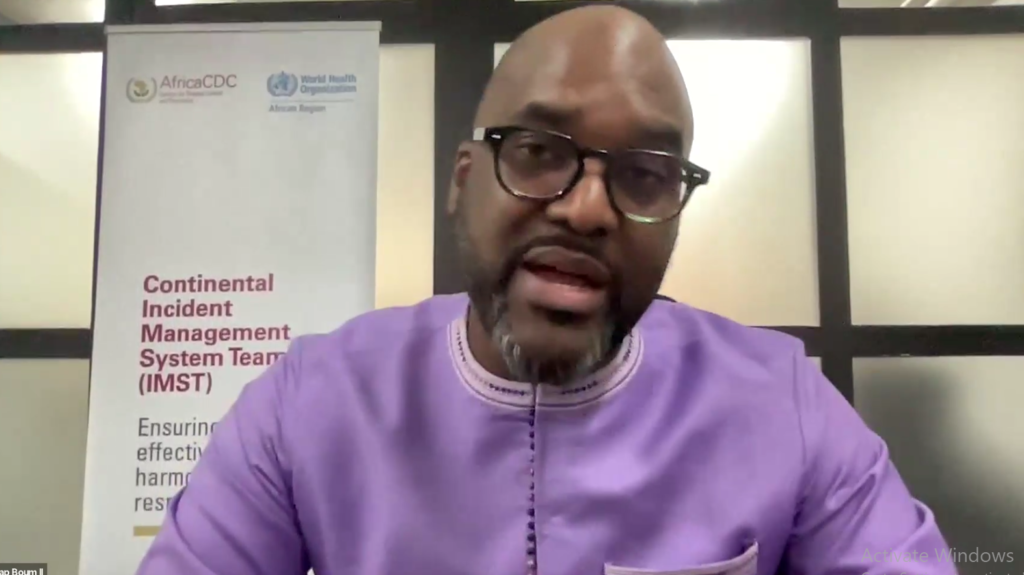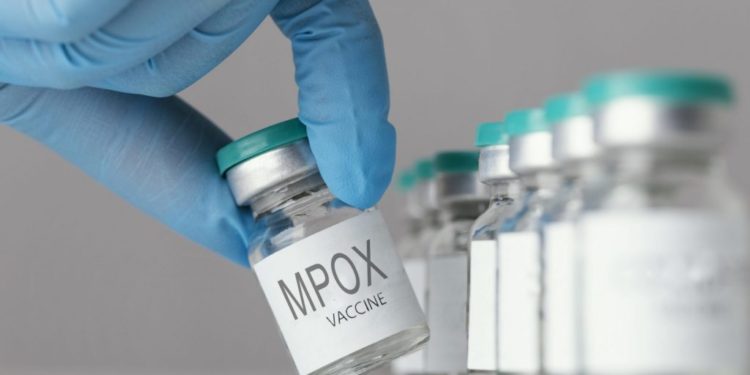By Kemo Cham
The Africa Centers for Diseases Control and Prevention (Africa CDC) has raised concern over shortage of Mpox vaccines at the global level as the continent struggles to contain the ongoing epidemic.
The continental public health agency said that six member states were on waiting list after requesting for the vaccines in the face of threat from the virus. Dr Yap Boum II, deputy head of the Incident Management Support Team (IMST) at Africa CDC, told journalists at the agency’s weekly press briefing on Mpox on Thursday that while the manufacturer had the capacity to manufacture the vaccine, the funds to procure them was lacking.
“As we speak now, we have six countries that are active (experiencing transmission of the virus) and that are requesting for vaccines. But currently, at the global level, there is no funded doses that are available,” Dr Boum said.
“This is for us a big challenge. This is a crisis, in the sense that if any other country needs the vaccine, we won’t be able to provide any dose.”

Africa CDC has been working with partners like the global vaccine alliance, Gavi and the UN children’s agency, Unicef to procure the vaccines. According to Dr Boum, Unicef has an outstanding order for 500, 000 doses of the vaccine and needs USD15 million for it, which isn’t forthcoming.
“So the challenge that we currently have is the money. The money to buy the vaccine and to be able to send them to the countries in need,” he said.
The development comes as data shows stead progress in efforts against the epidemic. And targeted vaccination campaigns have been at the heart of these efforts.
Eleven member states of the African Union have received the vaccines since the continent intensified its response almost a year ago. According to Africa CDC, only seven of these countries are currently vaccinating. The agency said the others couldn’t deploy the life-saving commodity due to lack of the resources to pay for operational cost.
Sierra Leone, one of the countries that have managed to deploy the vaccine, launched its campaign in March this year, two months after it recorded its first case of the viral disease in this epidemic.
Since then, Sierra Leone has received a total of 156, 300 doses of the vaccines. The last two batches of supplies were acquired through bilateral arrangements with the United Arab Emirate (20, 000 doses) and the Democratic Republic of the Congo (75,000 doses). Those are part of 200,000 doses the country was expected to receive in line with its last approved allocations. The remaining 50,000, according to Dr Boum, is expected in Freetown within the coming week.
“At this point, we can say that Sierra Leone is pretty safe,” he said, speaking about the availability of the vaccine for the country to sustain its ongoing campaign.
Sierra Leone is presently on the third phase of its vaccination campaign, which is targeting communities most at risk, with particular focus on contacts of infected persons, sex workers and people living with HIV.
Nonetheless, Dr Boum said news of the vaccine shortage is coming at the wrong time, as the continent struggles to prevent further spread of the virus to new frontlines. Data shared by the agency on Thursday July 3rd show that as at June 27, the continent has recorded 25,175 cumulative confirmed cases of the virus this year alone, with 574 deaths in 23 countries. This represents 127 percent of the total cases in the whole of 2024, indicating that 2025 is already the worst year for Mpox in the last three years.
However, the numbers this week show continued progress in terms of reduction in the number of cases on the continent.
Sierra Leone is among four countries, including DRC, Uganda and Burundi, that have accounted for majority of the cases on the continent. For the past several weeks, Sierra Leone was leading the trend in new cases, but the latest data show that this has changed.
Daily update from the National Public Health Agency (NPHA) indicates that Sierra Leone has recorded 4,591 cumulative confirmed cases as of Friday, July 4th, 2025.






















